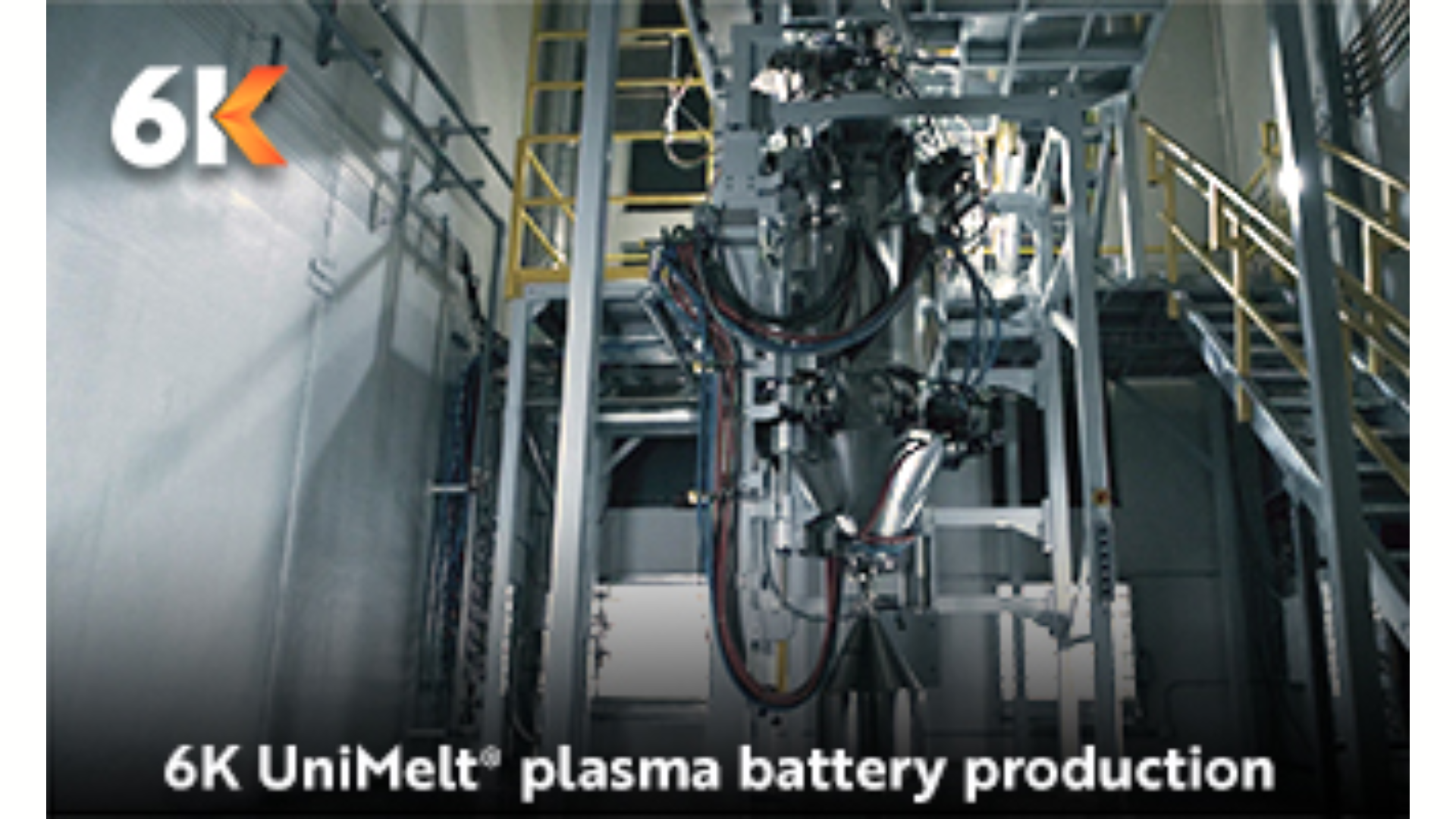
NORTH ANDOVER, Mass., Oct. 19, 2022 — 6K announced it has been selected as a recipient of the first set of projects funded by President Biden’s Bipartisan Infrastructure Law to expand domestic manufacturing of batteries for electric vehicles (EVs) and the electrical grid and for materials and components currently imported from other countries. The $107 million project, of which $50 million will be funded through federal share from the Department of Energy, to accelerate deployment costs for battery material production associated with 6K’s investment in a full-scale battery material manufacturing plant to be built in the southeast United States.
Responsible and sustainable domestic sourcing and processing of the critical materials used to make lithium-ion batteries will strengthen American supply chains, accelerate battery production to meet increased demand, and secure the nation’s economic competitiveness, energy independence, and national security. The funding announced today by the Department of Energy is the first phase of over $7 billion in total provided by the President’s Bipartisan Infrastructure Law for the battery supply chain.
“We are at a tipping point where investments in transformational technologies like our UniMelt microwave plasma will set us apart from China to help drive America’s energy independence,” said Dr. Aaron Bent, CEO for 6K. “As the popularity of electric vehicles escalates and clean energy technologies like wind, hydro and solar are deployed, the urgency for domestic battery material production to support cell manufacturing and battery storage will become vital. Battery material processing on US soil will support our critical infrastructure and de-risk supply chain availability while strengthening our national security and US competitiveness.”
6K Inc. plans to demonstrate the ability to domestically produce multiple battery chemistries, namely NMC811 and LFP, in a plant with the capacity of 3,000 tpa ready for production in 2025 and scaling to 10,000 tpa in 2026. As an example, the demonstration plant will sustainably produce NMC811, generating zero waste and 70% less greenhouse gases while using only 10% of the water and 30% of the energy that traditional battery material production methods use. Production costs for both materials will be significantly lower than materials sourced from China. 6K will demonstrate the ability to leverage feedstock sources domestically, freeing the US from its current dependency on conflict nations. This will be accomplished first by upcycling recycled materials sourced from end- of-life batteries followed by the digestion of 6K’s own metals.
In all phases of the project, 6K will include diversity, equity, inclusion, and accessibility principles working with local and regional workforce development agencies to create training and intern programs with high schools, technical and community colleges and local universities. Over time, the project will create up to 150 well-paying jobs and through education, recruitment, training, and retention initiatives, it is anticipated that at least 40% of the employees will come from disadvantaged communities and that the workforce will reflect the diversity of the community.
The funding announced today by the Department of Energy is the first phase of over $7 billion in total provided by the President’s Bipartisan Infrastructure Law for the battery supply chain. DOE’s Office of Manufacturing and Energy Supply Chains (MESC) is responsible for strengthening and securing manufacturing and energy supply chains needed to modernize the nation’s energy infrastructure and support a clean and equitable energy transition. MESC will manage the portfolio of projects with support from DOE’s Office of Energy Efficiency and Renewable Energy’s Vehicle Technologies Office.


